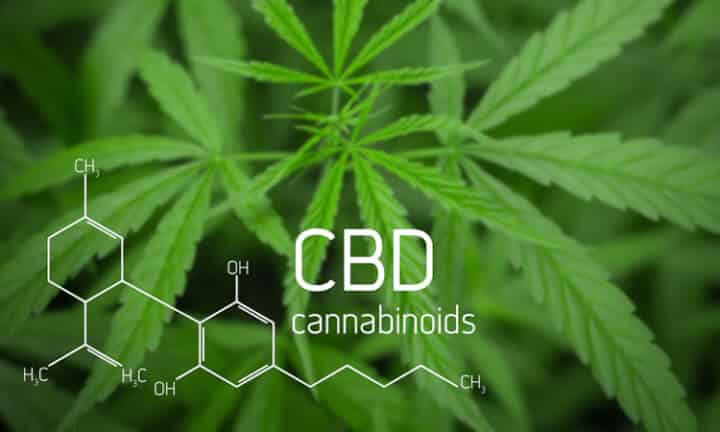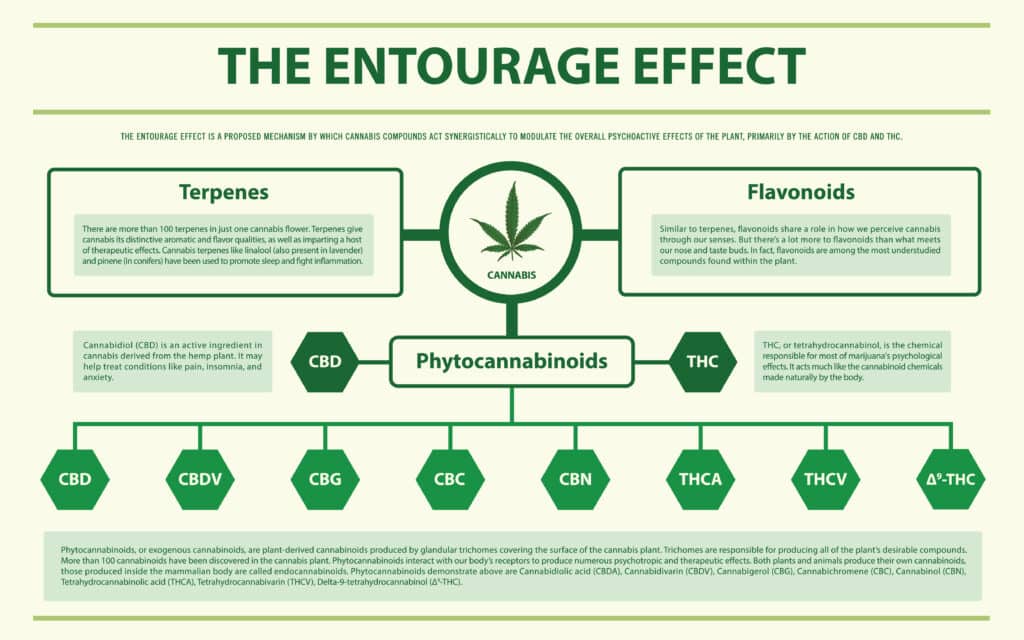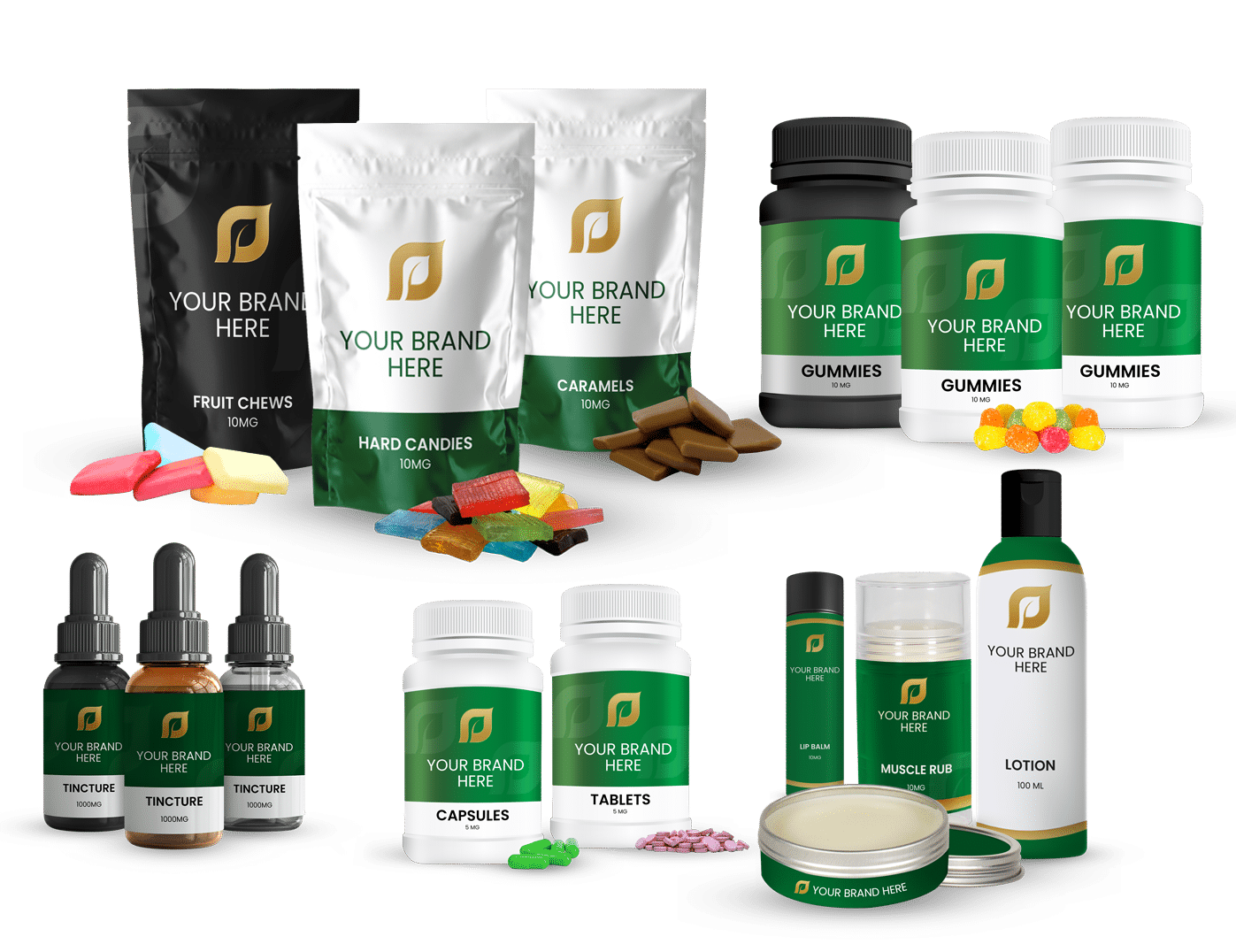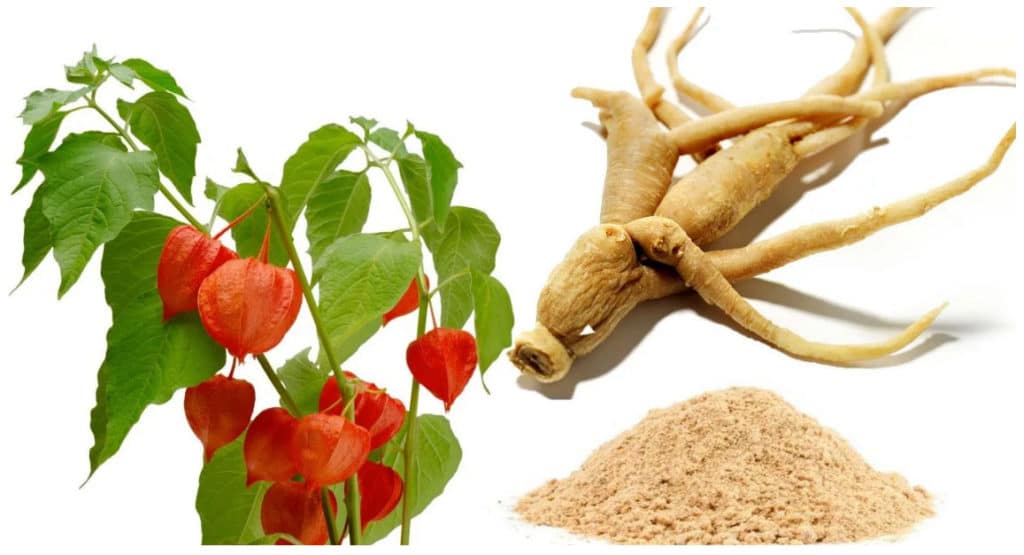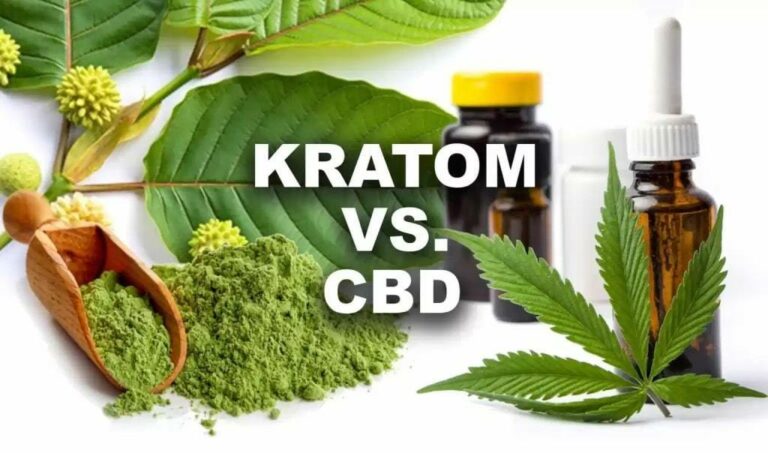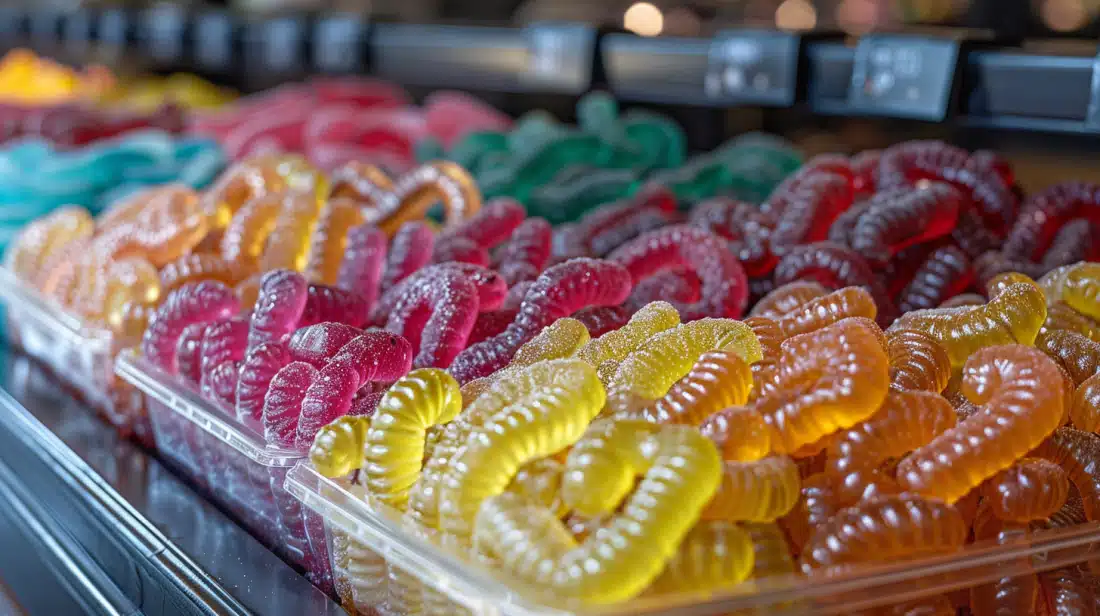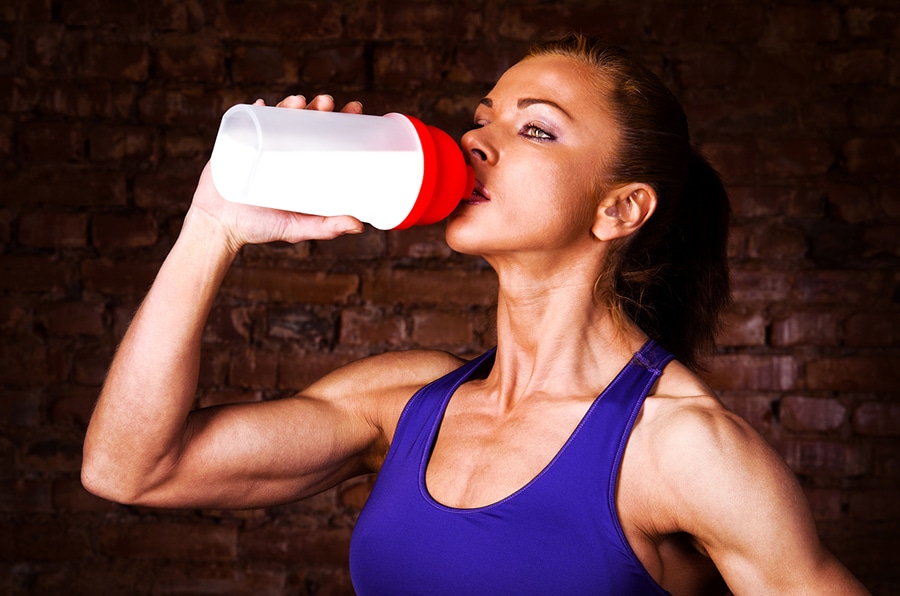Chances are you’ve heard of CBD—also known as cannabidiol—one of many natural compounds in the hemp plant. It’s the latest health craze, recommended to help with everything from anxiety to acne.
Given its popularity, if you’ve never tried CBD, you may be wondering how this compound will make you feel. While every CBD user experiences its effects differently, many people notice a range of health and wellness benefits after using it regularly. Here’s a bit more about CBD, how it works, and what it feels like.
Table of Contents
ToggleWhat Is CBD?
Cannabidiol (CBD) is a chemical compound, or cannabinoid, found in Cannabis Sativa plants. While it’s a common misconception that hemp and marijuana are different plants, they aren’t. The difference lies in the THC content. Any cannabis strain with THC levels under .3% is generally considered hemp, and those with more than .3% are considered marijuana. Both can contain high levels of CBD.
Hemp plants also contain a wide range of cannabinoids alongside CBD, including:
- THC
- CBG
- CBN
- CBL
- CBT
However, CBD is one of the best-known cannabinoids due to the range of health benefits it’s suggested to offer. It’s natural, safe to consume, and rarely has any side effects, giving it a similar reputation to supplements and superfoods. Many users experience a calming, relaxing effect, while others notice benefits such as pain relief and heightened immune response.
CBD is also easy to come by these days. You’ll find dozens of CBD oil products on the market ranging from tinctures and gummy candies to vape juice, so you can choose the product that best suits your needs.
How Does CBD Work?
Like any food, supplement, or medication you ingest, CBD travels throughout your body and targets specific receptors to produce unique effects. Let’s take a closer look into the Endocannabinoid System, the entourage effect, and how much CBD oil you should take to experience the best results.
The Endocannabinoid System
When you ingest CBD oil, the cannabinoid targets your Endocannabinoid System (ECS).
Many researchers consider the ECS one of the most vital, widespread receptor systems involved in maintaining good health. This system’s primary purpose is to maintain homeostasis, or the Greek word for “steady,” in your body. In other words, the ECS helps your body regulate essential physiological processes such as appetite, digestion, sleep, mood, hormones, heart function, memory, and more.
The ECS contains cannabinoid receptors that you can think of almost like tiny locks. To unlock and activate these receptors, your body needs cannabinoids, which you can visualize as the keys that fit the receptor locks. When you take cannabidiol (CBD) and other cannabinoids, the substances activate your ECS to produce homeostasis.
The ECS utilizes more complex processes than we’ve described here, and researchers are still determining what role CBD plays in these processes. The overall takeaway is that CBD may help your body function better and, in turn, makes you feel better overall.
The Entourage Effect
Now that you understand the Endocannabinoid System, it’s time to introduce another major player in the CBD game: the entourage effect.
As mentioned, the hemp plant contains several cannabinoids: CBD, THC, and CBG, among others. Along with cannabinoids, these plants also include other substances, like terpenes and oils. Each of these compounds produces different results for your body, and research shows that each one’s effects may change in the presence of other cannabinoids.
The entourage effect is a proposed mechanism by which cannabis compounds work together to produce powerful results. Let’s look at it this way: taking pure CBD may make you feel slightly relaxed and content. Ingesting pure CBG may promote pain relief.
However, taking CBD and CBG simultaneously allows the two compounds to work both separately and together, amplifying their benefits. Combining these phytocannabinoids with the range of other compounds and terpenes in full-spectrum CBD produces the best results.
More research is necessary to determine precisely how this process works, but for now, you should understand that the effects of CBD are vast and, often, surprising.
How Much CBD Should You Take?
Just like many supplements, your CBD dosage affects how powerful your results are. However, the amount of CBD you should take each day depends on several factors, including:
- Your height and weight
- The condition you’re looking to treat
- Your unique body chemistry
- The form of CBD (full-spectrum, broad-spectrum, or isolate) in your product
- The type of CBD product (tincture, gummy, flower, topical cream, etc.) you’re taking
We always recommend starting with a low dosage of around 10 mg and increasing from there. Every CBD product should clearly state its CBD content in milligrams, allowing you to accurately determine how much you are ingesting with each pill, gummy, or dropper full.
We also recommend talking to your doctor if you have any underlying health conditions, as it’s always best to get a professional opinion before beginning a new health regimen.
Can CBD Make You Feel High?
Many people confuse CBD with marijuana, fearing that ingesting CBD oil products will make them feel “high.” However, CBD and marijuana have different chemical makeups, and using CBD oil products will not produce any mind-altering, euphoric, or sedating effects.
CBD is non-intoxicating, meaning it can’t get you high. Unlike marijuana, which contains varying levels of THC, CBD must have less than 0.3% THC to be legal at the federal level. This small amount is non-intoxicating and rarely produces any effects commonly attributed to being “high.” Similarly, trace amounts of THC will not show up on a drug test.
You should always make sure to purchase your CBD oil from a reputable website that verifies its products’ CBD and THC content. Cheap or illegal CBD products may contain higher amounts of THC than their labels suggest, which may make you feel high.
Additionally, a small percentage of users react differently to CBD for unknown reasons. About 5% of CBD users—often the same people who experience adverse effects when taking Advil or Tylenol—report feeling “altered” after taking CBD.
Most often, however, CBD does not produce any psychoactive effects on users. You should not expect CBD to make you feel high.
THC vs. CBD vs. Hemp Seed Oil
As you look into purchasing CBD oil, you should make sure to keep a few buzzwords straight. THC, CBD, and hemp oil are all terms you may see when researching CBD, but these substances each produce different results throughout the body.
THC is one of many cannabinoids found in cannabis plants (less than .3% in hemp). However, unlike CBD, THC can produce psychoactive effects—it’s the compound that creates the “high” feeling in marijuana. Marijuana-based CBD products often do contain THC and may get you high. They are only legal in select states.
In contrast, the three primary forms of hemp-derived CBD (full-spectrum, broad-spectrum, and isolate) don’t produce any psychoactive or intoxicating effects. Full-spectrum CBD products contain several extracts you would naturally find in hemp, including small, legal amounts of THC. Broad-spectrum CBD and CBD isolate do not have any trace amounts of THC.
Finally, hemp seed oil is a derivative of the plant’s seeds alone, which don’t contain any CBD. This oil can still produce health benefits, but you should make sure not to confuse it with cannabidiol (CBD).
Is CBD Legal?
The 2018 Farm Bill legalized hemp containing less than 0.3% THC at the federal level. However, each state has its own requirements for growing, manufacturing, selling, and consuming hemp products. Idaho, Mississippi, New Hampshire, and South Dakota have laws prohibiting hemp production, for example, while other states have their own legislation for growing and consuming the plant.
Additionally, the Food and Drug Administration distinguishes topical cannabidiol products from oral products. Applying CBD creams to the skin may produce less potent results compared to ingesting the oil orally.
While the FDA has not approved topical CBD, it has approved a few drugs that contain the cannabinoid (such as Epidiolex). Keep in mind that the FDA does not need to approve CBD products for manufacturers to distribute them, and just because a product does not have FDA approval does not mean it is unsafe.
Finally, CBD which contains more than 0.3% THC is not legal at the federal level. To purchase high-THC cannabidiol, you’ll need to have a medical marijuana card or live in a state that has legalized the marijuana cannabis plant for recreational or medical use.
Overall, while CBD may be legal at the federal level, it is not legal in every form in every state, and the cannabis plant as a whole is illegal in many areas. Be sure to verify what is and isn’t legal in your state before purchasing a CBD product. Keep in mind that buying from a reputable website will give you the best chance of purchasing a safe, legal CBD product.
What Does CBD Feel Like?
After learning so many details about CBD, you may still be wondering: what does CBD feel like? Will you immediately notice its effects? How strong will they be? What if you don’t feel anything?
The simplest answer to this question is: you will probably feel a sense of calmness and tranquility a few hours after using CBD. However, you may have to search a little harder and pay attention to your body to feel any other physical results after use.
Before trying CBD for yourself, you should keep in mind that the results may vary. Everyone’s body is different, so CBD will affect one person differently than it affects someone else. CBD may make you feel calm, relaxed, and content, but it may also produce no effects whatsoever. The only way to know for sure what CBD feels like is to try it yourself.
More research is necessary to determine CBD’s exact benefits and side effects. CBD is not intended to diagnose, treat, cure, or prevent any disease, and any CBD companies that promise to produce specific results are likely less than reputable.
Even so, many CBD users experience similar effects while taking this compound. The best way to answer the question “What does CBD feel like?” is to note the most common benefits and side effects long-term CBD users have reported.
Benefits of CBD Oil
Many CBD users notice a sense of relaxation, calm, and tranquillity a few hours after they take CBD. While these sensations are more noticeable for some people than others, you can expect to feel at least a little more relaxed after using CBD oil.
Additionally, though everyone experiences CBD differently, here are a few benefits some people, and even doctors, have noticed while taking CBD oil:
- Reduced back pain
- Reduced chronic pain
- Anxiety relief
- Boosted immune system responses
- Nausea relief
- Reduced epilepsy symptoms
- Lower blood pressure
- Reduced inflammation
- Acne relief
While the only FDA-approved use of CBD is to treat epilepsy, researchers continually find new advantages of taking CBD oil. Even so, keep in mind that CBD products should not claim to treat any diseases or provide any therapeutic uses without FDA approval. Results vary for every user, and CBD may affect you in a completely different way than it affects someone else.
Side Effects of CBD Oil
CBD oil is natural and safe, and most people don’t experience any adverse symptoms with regular use. In the rare cases they occur, the most common side effects of CBD include:
- Dry mouth
- Reduced appetite
- Interference with other medications
- Diarrhea
- Drowsiness or fatigue
If you experience any of these symptoms while using CBD, you should stop use and consult your doctor. Taking a lower dose may limit side effects, which is why we recommend starting at around 10 mg a day and increasing your amount as needed.
How long does CBD stay in your system?
The length of time CBD stays in your system depends on several factors, including:
- Dosage: Higher doses of CBD tend to stay in your system longer than lower doses.
- Frequency of use: Regular CBD use can lead to accumulation in the body, prolonging its presence in your system.
- Method of consumption: CBD can be consumed through various methods, such as ingestion, inhalation, or topical application, each with different absorption rates and durations.
- Individual factors: Your body composition, metabolism, and hydration levels can influence how quickly CBD is metabolized and eliminated from your system.
Generally, CBD can remain detectable in your system anywhere from a few days to a few weeks:
- Urine: CBD can be detected in urine for approximately 3 to 5 days after use.
- Blood: CBD can be detected in blood for up to 5 days after use.
- Saliva: CBD can be detected in saliva for about 1 to 2 days after use.
- Hair: Like other substances, CBD can be detected in hair follicles for up to 90 days after use.
It’s important to note that while most standard drug tests screen for THC, some CBD products may contain trace amounts of THC, which could potentially trigger a positive result. If you are subject to drug testing, it’s best to consult with your employer or the testing entity to understand their specific policies regarding CBD use.
Ready to Try CBD?
CBD oil has taken the world by storm in recent years, and if you’ve ever wondered, “What does CBD feel like?” you aren’t alone. Fear of the unknown is one of the most common reasons people avoid using CBD oil, but in reality, it is natural, harmless, and can produce a range of positive effects on your health and well-being.
Now that you know how CBD feels, the difference between cannabis, marijuana, and hemp, and how CBD works in your body, you can start your CBD journey with confidence. The only way to truly know how it will affect you is to try it for yourself—and like many users, you may find that CBD oil changes your life.
At CBD Nationwide, we offer the highest-quality CBD products on the market. Check out our inventory today to find the perfect option for your needs.
Resources
- “Cannabinoid Receptors and the Endocannabinoid System: Signaling and Function in the Central Nervous System” https://www.ncbi.nlm.nih.gov/pmc/articles/PMC5877694/
- “How does marijuana produce its effects?” https://www.drugabuse.gov/publications/research-reports/marijuana/how-does-marijuana-produce-its-effects
- “Cannabidiol (CBD)-what we know and what we don’t” https://www.health.harvard.edu/blog/cannabidiol-cbd-what-we-know-and-what-we-dont-2018082414476
- “Farm Bill | USDA” https://www.usda.gov/farmbill
- “FDA Approves First Drug Comprised of an Active Ingredient Derived from Marijuana to Treat Rare, Severe Forms of Epilepsy” https://www.fda.gov/news-events/press-announcements/fda-approves-first-drug-comprised-active-ingredient-derived-marijuana-treat-rare-severe-forms
- “CBD: Safe and effective?” https://www.mayoclinic.org/healthy-lifestyle/consumer-health/expert-answers/is-cbd-safe-and-effective/faq-20446700

